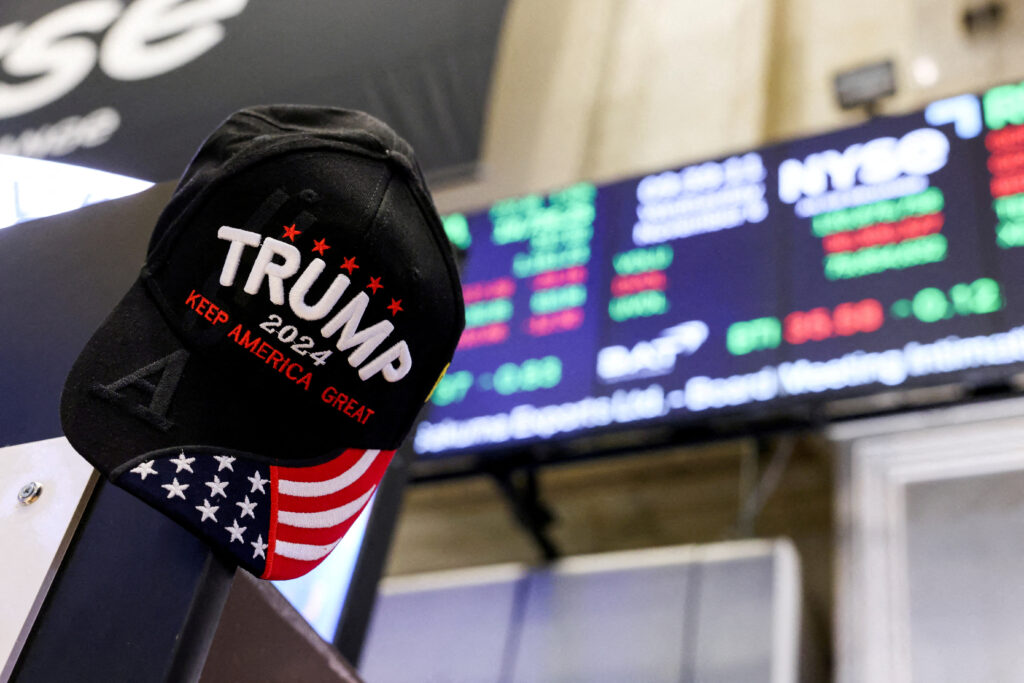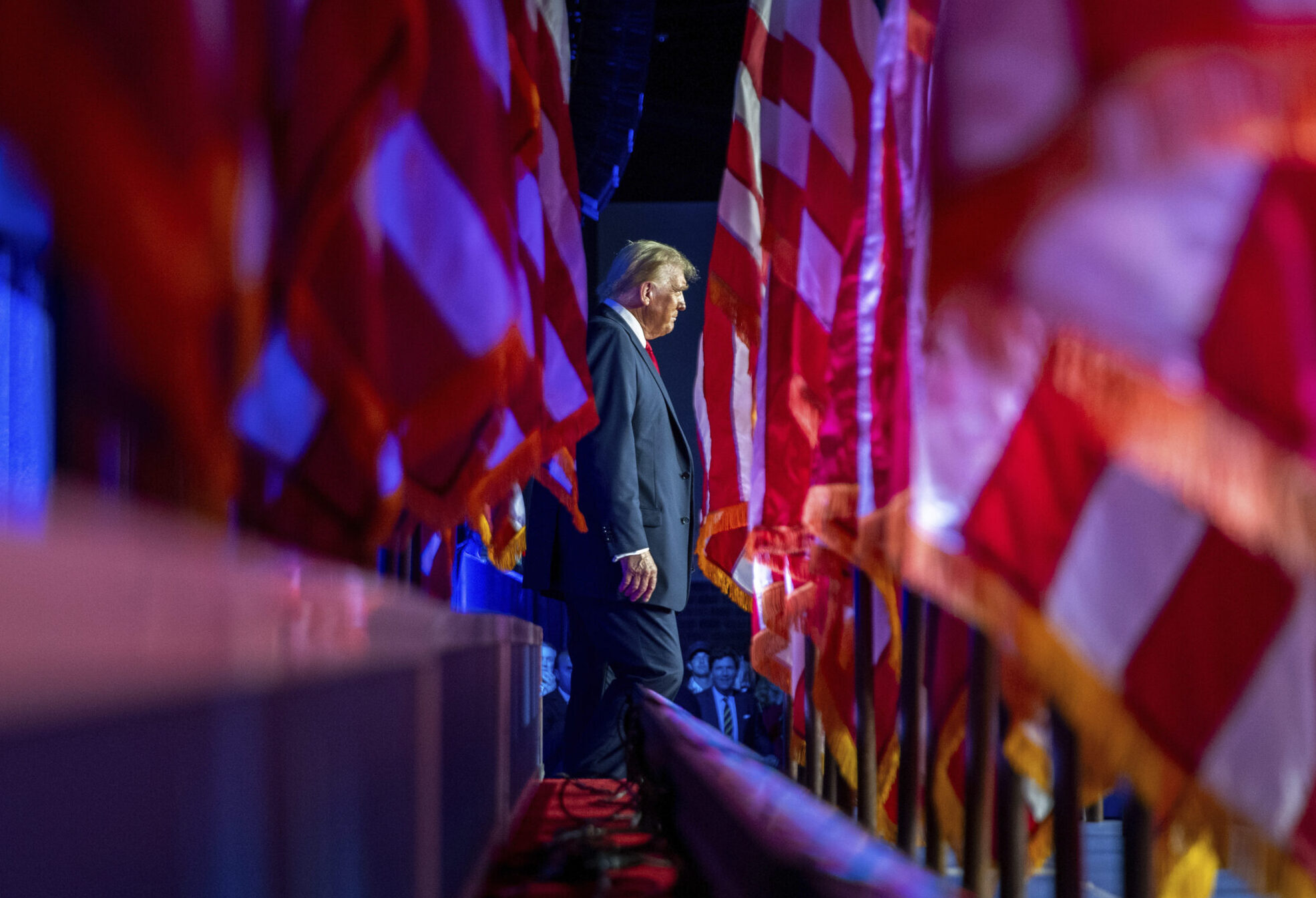Market Surges on Trump Speculation; Renewables Lag Behind
The financial markets have displayed a remarkable surge recently, driven by speculation surrounding former President Donald Trump’s potential return to political prominence. Investors appear optimistic about the prospects of a Trump-influenced economy, which is often associated with deregulation and business-friendly policies. This optimism has sparked a rally across various sectors, sending stock indices to new highs.
Wall Street analysts suggest that Trump’s possible re-entry into the political arena could reinvigorate sectors that thrived during his presidency. These include energy, manufacturing, and financial services, which saw robust growth under his administration. The prospect of reduced regulatory burdens and tax cuts are enticing to investors who favor a free-market approach.
The energy sector, in particular, has seen significant gains, with traditional oil and gas companies leading the charge. Under Trump, the focus on energy independence and support for fossil fuels contributed to a thriving oil industry. Investors are betting that a return to such policies could once again bolster this crucial sector of the economy.
In contrast, the renewable energy sector has faced headwinds, lagging behind in the current market surge. Despite the global push for cleaner energy, the lack of immediate clarity on policy directions has left investors hesitant. While renewables hold long-term promise, the short-term outlook remains uncertain amidst shifting political winds.
The divergence between traditional and renewable energy sectors highlights the ongoing debate about the best path forward for America’s energy future. Conservatives often argue that a balanced approach, which includes a strong role for fossil fuels, is essential for economic stability and energy security. This perspective seems to be gaining traction as market dynamics shift.
Financial services have also benefited from the speculation, with banking stocks posting notable gains. The anticipation of regulatory rollbacks and tax reforms under a possible Trump-influenced administration is fueling investor enthusiasm. This optimism is rooted in the belief that a lighter regulatory touch could unleash economic growth and innovation.
Manufacturing, another Trump-era favorite, is experiencing renewed interest from investors. The promise of policies favoring domestic production and job creation is appealing to those who prioritize American industry. This shift in investor sentiment underscores the enduring appeal of manufacturing as a cornerstone of economic strength.
Despite the market’s enthusiasm, some economists caution against over-reliance on speculation-driven rallies. They warn that sustainable growth requires more than just favorable policies; it demands innovation and adaptation to global economic trends. Nonetheless, the market’s current trajectory reflects a strong belief in the potential benefits of a Trump-influenced economic landscape.
The political implications of this market movement are significant, as they highlight the enduring influence of Trump’s policies. For conservatives, the market surge is a vindication of their belief in the power of deregulation and tax cuts to stimulate growth. It also underscores the importance of maintaining a business-friendly environment to attract investment.
Critics, however, argue that the focus on traditional industries could hinder progress in addressing climate change and other pressing global challenges. They advocate for a more aggressive transition to renewable energy and sustainable practices. This ongoing debate reflects the broader ideological divide over the best path forward for the nation’s economic and environmental future.
As the market continues to react to political developments, investors will be closely watching for concrete policy proposals. The interplay between speculation and actual policy implementation will play a crucial role in shaping the economic landscape. This dynamic underscores the importance of clarity and consistency in policy-making to sustain investor confidence.
For now, the market surge is a testament to the enduring allure of Trump’s economic vision among investors. The promise of lower taxes, reduced regulation, and a focus on American industry continues to resonate with those who prioritize economic growth and job creation. This sentiment is likely to influence market trends in the months ahead.
In the renewable energy sector, companies are grappling with the challenge of navigating an uncertain policy environment. While long-term prospects remain positive, short-term volatility is a concern for investors. The sector’s ability to adapt and innovate will be crucial in maintaining its relevance in the evolving energy landscape.
The market’s response to Trump speculation reflects broader economic and political dynamics at play. The interplay between traditional industries and emerging technologies will shape the nation’s economic trajectory. As investors weigh the risks and opportunities, the coming months will be critical in determining the direction of both the market and the economy.
The market surge on Trump speculation underscores the complex interplay between politics and economics. Investors are betting on a return to policies that favor growth and deregulation, while the renewable sector faces challenges amid uncertainty. As the situation unfolds, the balance between traditional and emerging industries will be key to shaping the future economic landscape.

